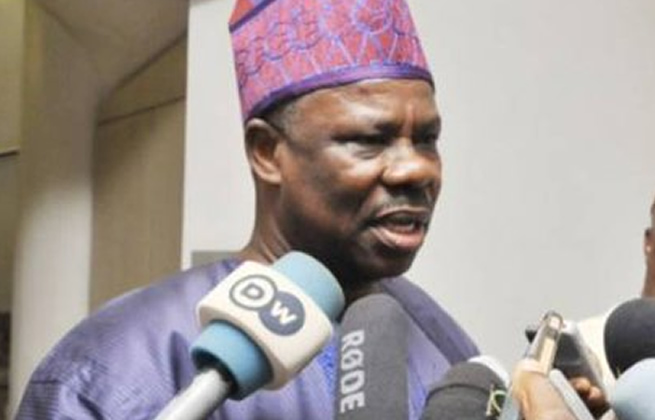Senator Ibikunle Amosun, a former Governor of Ogun State, has voiced his deep concern over the resurgence of violence and killings in Plateau State, emphasizing the urgent need for all Nigerians to prioritize peaceful coexistence, irrespective of their tribal, ethnic, or religious affiliations. Speaking at the 11th Triennial National Conference and 101st Anniversary of the Ansar-ud-Deen Society of Nigeria in Abeokuta, Amosun condemned the escalating violence and stressed the importance of unity and mutual respect in a nation as diverse as Nigeria. He framed his message within the context of the conference’s theme, “Islam and Muslims: Roles and Relevance in a Pluralistic World,” arguing that the current global climate necessitates a renewed commitment to interfaith dialogue and tolerance.
Amosun’s condemnation extended beyond the recent Plateau State killings to encompass the broader issue of extremist violence, both within and outside Nigeria. He explicitly denounced the actions of groups like Boko Haram and Lakurawa in northern Nigeria, as well as international terrorist organizations such as ISIS and Al-Qaeda, highlighting the detrimental impact these groups have on the true image and teachings of Islam. He argued that such acts of violence contradict the fundamental principles of Islam, which, according to him, emphasizes peace, compassion, and mutual understanding among all people, regardless of their religious beliefs. He lamented the perversion of religion, particularly Islam, from a source of peace and unity to a tool of hatred and conflict.
The former governor underscored the importance of embracing pluralism as a strength rather than a source of division. He clarified that religious pluralism should not be interpreted as a competition for dominance or a justification for the suppression of one faith by another. Instead, he posited that it should be a catalyst for unity and mutual respect, allowing different religious communities to coexist harmoniously and contribute to the overall progress of society. He expressed his dismay that despite the positive contributions of Muslims to various aspects of societal development, including the promotion of justice and equity, the actions of a few extremist groups have cast a shadow over the entire Muslim community, often leading to unwarranted suspicion and prejudice.
Amosun particularly lamented the tragic loss of life in Plateau State and other regions of Nigeria, where conflicts stemming from land disputes and ethnic tensions have resulted in needless bloodshed. He emphasized the inherent equality of all tribes and ethnic groups, rejecting any notion of superiority or inferiority based on such classifications. He called for the celebration of Nigeria’s diversity as a source of strength and identity, advocating for respect for individual differences rather than using these differences as a pretext for oppression or violence. He urged Nigerians to recognize the sanctity of human life and to refrain from resorting to violence as a means of resolving disputes.
Addressing the Muslim community directly, Amosun issued a call to action, urging them to actively counter the negative narratives propagated by extremist groups. He emphasized the inherent peacefulness of Islam and the need for Muslims to reflect this in their actions and interactions with others, both within and outside the faith. By demonstrating the true values of Islam – peace, harmony, and equity – Muslims can help dispel misconceptions and foster greater understanding and respect among people of different faiths. He encouraged Muslims to be ambassadors of peace and to work tirelessly to restore the positive image of Islam, which has been tarnished by the actions of a minority.
Concluding his remarks, Amosun commended the recipients of the Ansar-ud-Deen Society’s merit awards, encouraging them to continue their efforts in promoting interfaith understanding and national unity. He echoed the sentiments of the National Missioner, Sheikh Abdul-Rahman Ahmad, who emphasized the importance of individual accountability and righteousness in building a just and prosperous society. Sheikh Ahmad reminded the audience that individual actions have far-reaching consequences, both in this world and the hereafter, and urged everyone to strive for transparency and accountability in all their dealings. This collective commitment to individual responsibility, coupled with a renewed emphasis on peaceful coexistence, forms the foundation for a stronger and more harmonious Nigeria, according to both Amosun and Sheikh Ahmad.


